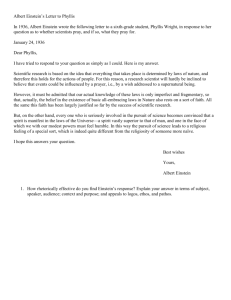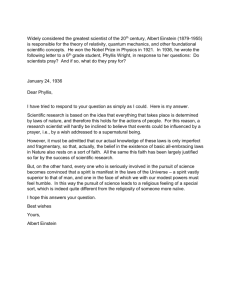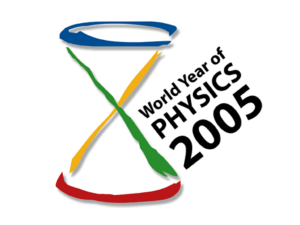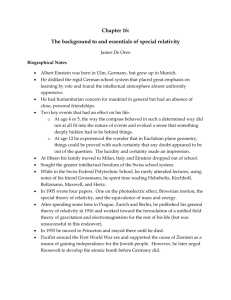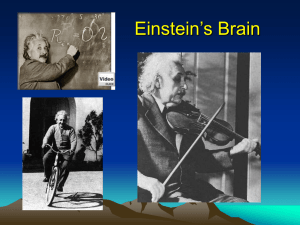File - Virtual Book Tour Café
advertisement
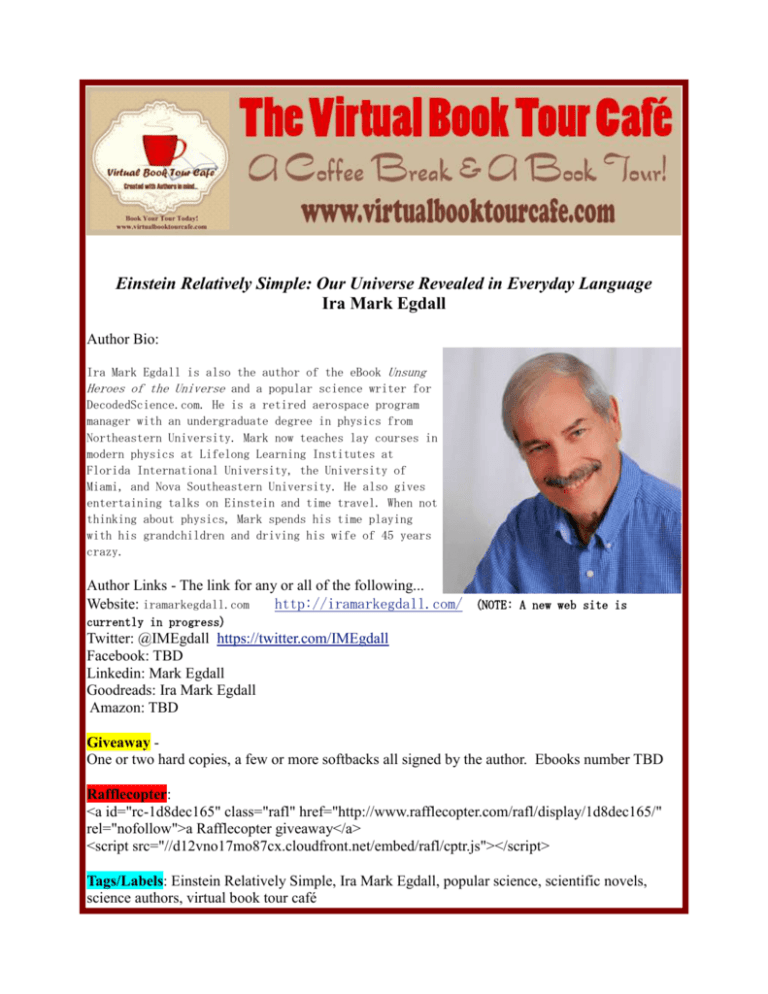
Einstein Relatively Simple: Our Universe Revealed in Everyday Language Ira Mark Egdall Author Bio: Ira Mark Egdall is also the author of the eBook Unsung Heroes of the Universe and a popular science writer for DecodedScience.com. He is a retired aerospace program manager with an undergraduate degree in physics from Northeastern University. Mark now teaches lay courses in modern physics at Lifelong Learning Institutes at Florida International University, the University of Miami, and Nova Southeastern University. He also gives entertaining talks on Einstein and time travel. When not thinking about physics, Mark spends his time playing with his grandchildren and driving his wife of 45 years crazy. Author Links - The link for any or all of the following... Website: iramarkegdall.com http://iramarkegdall.com/ (NOTE: A new web site is currently in progress) Twitter: @IMEgdall https://twitter.com/IMEgdall Facebook: TBD Linkedin: Mark Egdall Goodreads: Ira Mark Egdall Amazon: TBD Giveaway One or two hard copies, a few or more softbacks all signed by the author. Ebooks number TBD Rafflecopter: <a id="rc-1d8dec165" class="rafl" href="http://www.rafflecopter.com/rafl/display/1d8dec165/" rel="nofollow">a Rafflecopter giveaway</a> <script src="//d12vno17mo87cx.cloudfront.net/embed/rafl/cptr.js"></script> Tags/Labels: Einstein Relatively Simple, Ira Mark Egdall, popular science, scientific novels, science authors, virtual book tour café Book Genre: Popular Science Publisher: World Scientific Publishing Release Date: February 24, 2014 Buy Link(s): Amazon http://www.amazon.com/Einstein-Relatively-Simple-UniverseRevealed/dp/9814525596/ref=sr_1_1?ie=UTF8&qid=13849628 59&sr=8-1&keywords=einstein+relatively+simple Barnes & Noble http://www.barnesandnoble.com/w/einstein-relatively-simpleira-mark-egdall/1116602771?ean=9789814525596 Apple http://www.greenapplebooks.com/book/9789814525589 Indybound: http://www.indiebound.org/book/9789814525589 Book Description: Einstein Relatively Simple brings together for the first time an exceptionally clear explanation of both special and general relativity. It is for people who always wanted to understand Einstein’s ideas but never thought it possible. Told with humor, enthusiasm, and rare clarity, this entertaining book reveals how a former high school drop-out revolutionized our concepts of space and time. From E=mc2 and everyday time travel to black holes and the big bang, the book takes us all, regardless of any scientific background, on a mindboggling journey through the depths of Einstein's universe. Along the way, we track Einstein through the perils and triumphs of his life — follow his thinking, his logic, and his insights — and chronicle the audacity, imagination, and sheer genius of the man recognized as the greatest scientist of the modern era. Excerpt One (300-500 or so Words): Prologue All knowledge begins in wonder. Aristotle In June of 1905, former high-school drop-out and lowly patent clerk Albert Einstein published a paper in the German Annals of Physics which revolutionized our understanding of space and time. What came to be known as the theory of special relativity predicted a strange new universe where time slows and space shrinks with motion. In that same journal, Einstein proposed light comes in discreet packets of energy we now call photons. Along with Max Planck’s work, this insight sparked the quantum revolution. This in turn set off the greatest technological revolution in human history — enabling the invention of television, transistors, electronic digital computers, cell phones, digital cameras, lasers, the electron microscope, atomic clocks, MRI, sonograms, and many more modern-day devices. Einstein’s follow-up article in September of 1905 proposed that mass and energy are equivalent. His famous equation, E = mc2, came to solve one of the great mysteries of modern science — how the Sun and stars shine. Some four decades later, Einstein’s breakthrough ushered in the atomic age. In December of 1915, Albert Einstein — now Professor of Theoretical Physics at the University of Berlin — surpassed his already staggering accomplishments. In the midst of the turmoil and hardships of World War I, he produced his life’s masterpiece: a new theory of gravity. His audacious general theory of relativity revealed a cosmos beyond our wildest imagination. It predicted phenomena so bizarre even Einstein initially doubted their existence — black holes which trap light and stop time, wormholes which form gravitational time machines, the expansion of space itself, and the birth of the universe some 13.8 billion years ago in the ultimate cosmic event: the Big Bang. Not since Isaac Newton had a single physicist attained such monumental breakthroughs, and no scientist since has matched his breathtaking achievements. In recognition, TIME magazine selected Albert Einstein above such luminaries as Franklin Delano Roosevelt and Mohandas Gandhi, as the “Person of the Century” — the single individual with the most significant impact on the 20th century. Albert Einstein has long since passed from this corporal world. Yet his fame lives on. His discoveries inspire today’s generation of physicists — providing stepping stones to a new understanding of the cosmos and perhaps someday a unified theory of all physics. His brilliance, independence of mind, and persistence continue to be an inspiration to us all. He remains the iconic figure of science, whose genius transcends the limits of human understanding. I wrote Einstein Relatively Simple to tell Einstein’s story — to hopefully provide the non-expert a clear, step-by-step explanation of how he came to develop both special and general relativity. My goal is a book which is comprehensive, fun to read, and most important, understandable to the lay reader . . . So come explore how an unknown patent clerk came to develop a new theory of time and space, how he came to supplant the illustrious Isaac Newton with a new theory of gravity. Along the way we will examine the mind of Albert Einstein, who preferred to think in pictures rather than words, follow his thinking, his logic, and his insights. To quote one of my students; “You’ll never look at the universe the same way again!” . Excerpt Two (500-800 or so Words): Excerpt from Chapter 14, Einstein's Masterpiece. The Lost Years . . . Berlin In July 1913, Max Planck and Walther Nernst approached Einstein with a tantalizing offer — a professorship in Berlin, the “world-capital” of physics, and membership in the prestigious Prussian Academy of Sciences. 13,14 At age 34, he would be appointed to Director of the Kaiser Wilhelm Physical Institute and Professor in the University of Berlin, and become the youngest member of the Prussian Academy of Sciences — the “premier scientific society of all Europe.” 15 In addition, he would have no teaching responsibilities nor any real administrative duties. After five months of consideration, Einstein accepted the offer. He left Zurich Poly the following spring, and moved back with his family to the country of his birth. On arrival in Berlin, he remarked: The Germans are gambling on me as they would on a prize-winning hen, but I don’t know if I can still lay eggs.16 On June 28, 1914, four days before Einstein gave his inaugural address to the Prussian Academy, a Serbian nationalist assassinated Archduke Franz Ferdinand, heir to Austria-Hungary’s throne, and his wife, Sophie, while they were visiting Sarajevo. 17 With the pretext he had been looking for, Austro-Hungarian Emperor Franz Joseph declared war on Serbia a month later. World War I, the “War to End All Wars,” had begun. On July 31, Serbian ally Russia mobilized its armed forces. The next day, Austria-Hungary’s ally Germany declared war on Russia. Two days later, she declared war on France, and then on neutral Belgium to flank France. In response, Britain declared war on Germany. On August 6, Austria-Hungary declared war on Russia. The continent was soon ablaze with the bloodiest and most inexplicable war in its history. In September of 1914, ninety-three prominent German scientists, scholars, and artists, including Max Planck, signed a manifesto which declared support for the Kaiser and the war effort. 18 Albert Einstein refused to sign. Two months later, he put his signature on a counter-manifesto calling for peace. Only four others dared sign. Europe in her insanity has started something unbelievable. At such times as this one realizes what a sorry species of animal one belongs to.19 Albert Einstein To make matters worse, Einstein’s marriage to Mileva Marić was on the rocks. As his fame grew, her resentment over the time he spent outside the home and on his physics grew accordingly. In the spring of 1912, while a professor in Prague, Einstein had reconnected with his cousin Elsa Löwenthal, a divorcée with two grown daughters who lived in Berlin.20 Unhappy at home, he began a romantic correspondence. After several failed attempts at reconciliation, Mileva left Berlin in July of 1914 and returned to Zurich with the two boys. (See Fig. 14.3.) Seeing his sons off at the station, Albert “bawled like a little boy.” 21 He wrote to Elsa; “They used to shout with joy when I came … Now they will be gone forever.” Einstein’s mother Pauline was delighted with the news. She had always disliked Marić intensely. “Oh, if your poor Papa had only lived to see it!” she told her son.22 In the bitter summer of 1915, Albert Einstein found himself at the lowest point of his adult life. Not since his parents had left him in the hated Munich gymnasium and moved to Italy had he felt such despair. With the continent and much of the world raging with war, his health deteriorating due to lack of food, his children virtually unreachable in Zurich, and his new theory of gravity at a dead end, his only solace was the growing attentions of Elsa. But for Einstein it was literally the dark before the dawn . . .

